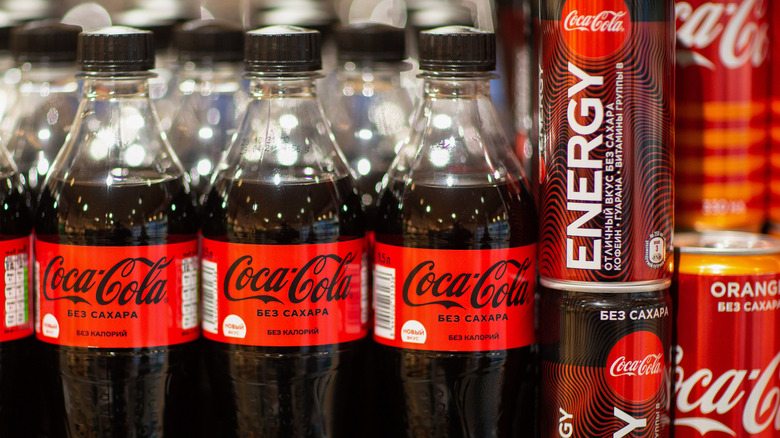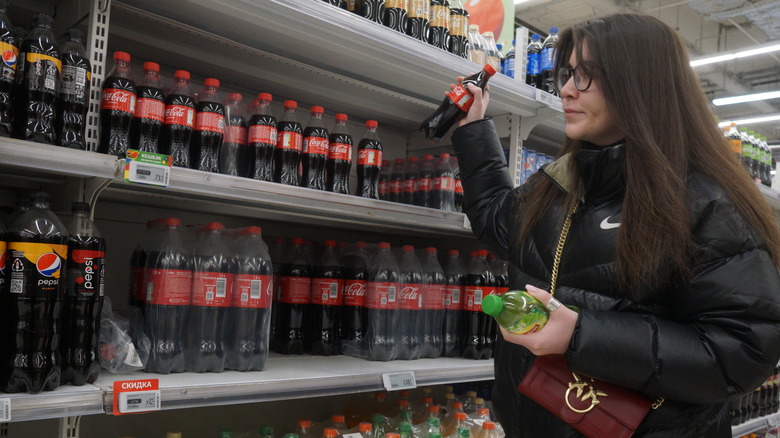Why Coca-Cola Was Forced To Reveal Its Plans For Russia
When "Vkusno & tochka" or "Tasty & that's it" first opened its doors in Moscow on June 12, the successor to McDonald's in Russia indicated it was selling a range of items including French fries, a burger known as the Grand De Luxe, chicken nuggets, and cherry pies, as well as bottled water and Coca Cola, per The Wall Street Journal. Even then, the new fast food chain's chief executive Oleg Paroev warned that the menu "would likely change due to the restrictions of foreign suppliers selling into the Russian market."
It seems like Paroev's warning might be coming true — at least on the beverage front and a lot sooner than anyone might think. Coca-Cola HBC has released a statement that all of its Russian customers "are in the process of depleting stock," and once that's done, the beverage will "no longer produce or sell Coca-Cola or other brands of the Coca-Cola Company in Russia," per Reuters.
McDonald's and Coca Cola received social media backlash over its Russian business
Both McDonald's and Coca-Cola received a significant amount of social media backlash earlier this year when the brands refused to speak out about Russia's attack on Ukraine, even after other Western companies had either stopped providing services in Russia or had pulled out altogether, per BBC. It was so bad that #BoycottMcDonalds and #BoycottCocaCola began trending on Twitter. At the time, analyst Kathleen Brooks had said both companies had complex business operations in the country. "I don't think it's as simple as saying can you just pull out of Russia. These are complicated businesses and there's a lot to consider, but right now the reputation risk could really hit their share prices so they may have no choice going forward," she said.
When it said it would be "suspending its business in Russia," Coca-Cola didn't reveal much in its company release, but Reuters reported that the soft drink giant wouldn't be ordering any more concentrate and that it would focus on local brands instead. At the time it ceased operations, the company operated ten plants that manufactured both soft drinks and juices in the region, per Interfax.

